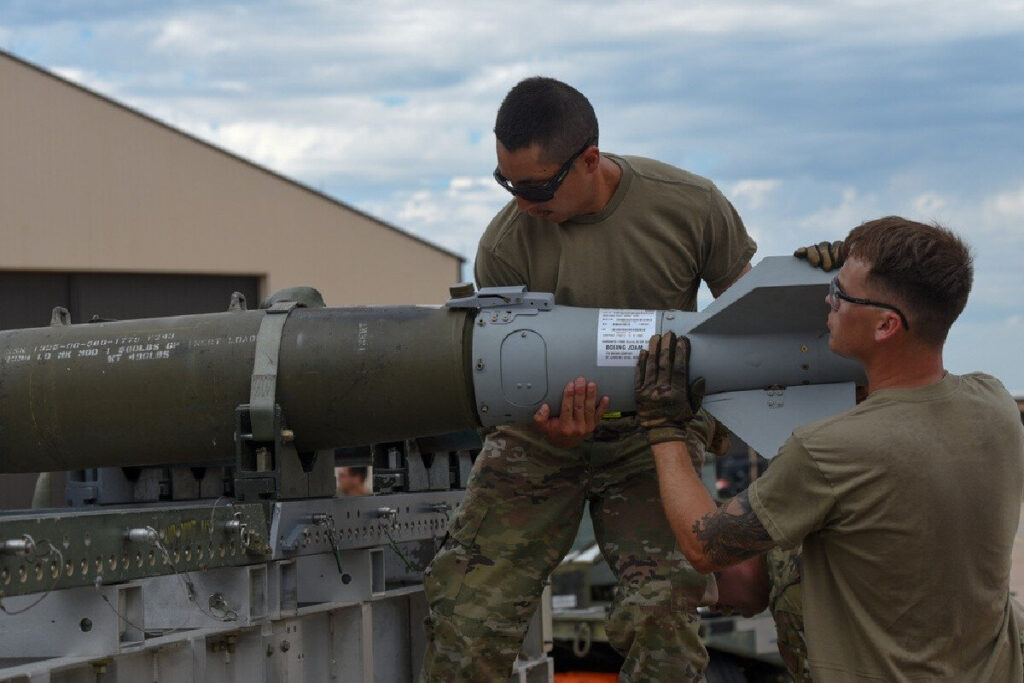Tehran – During Donald Trump’s second presidency, US-Israel relations entered a new phase characterized by intensified military, political and diplomatic support.
Based on his close ties with the administration with Israel, Trump accelerated the flow of advanced weapons and munitions and strengthened Israel’s military capabilities in Gaza to strengthen Israel’s military capabilities within the administration’s mass laws.
This new aid covers robust diplomatic support at the United Nations and strategic cooperation aimed at maintaining Israel’s military superiority in the region.
To restore Israel’s military preparedness in the face of the war in Gaza, the Trump administration expanded strong ties with Israel and overturned many Biden administration restrictions on aid and arms transfer to Israel.
In addition to providing arms and financial aid, the new aid will involve important diplomatic support at the United Nations and other international organizations, as well as other strategic initiatives in favour of Israel’s military advantage in the region.
The Trump administration’s current approach reflects a larger geopolitical strategy focused on countering resistance groups while promoting Israel’s military edge.
However, this continued support has created fierce debate and international protests on humanitarian issues, and debate about long-term impacts.
Expanding military aid
In March 2025, the Trump administration used emergency authorities to accelerate military support to Israel, avoiding standard periods of Congressional notice and signaling a clear break from the Biden administration’s failure. The $4 billion support is part of a broader pattern of Trump’s approval of nearly $12 billion in sales of foreign troops to Israel since Trump took office, indicating his important commitment to protecting and strengthening Israeli military forces.
The administration was also able to reverse Biden’s policies when it canceled the National Security Memorandum 20.
In addition to financial aid, the US provided Israel with a huge amount of ammunition important for its military operations in Gaza. These shipments included tens of thousands of bombs and shell-like shells, including the MK 84 and BLU-117 bomb-4,000 predator warheads, as well as components for the iron dome missile defense system.
Emergency sales of hundreds of millions of dollars worth of tank shells and shells have also been permitted to replenish Israel’s stockpiles that began in October 2023 and were allowed to replenish Israel’s stockpiles that were exhausted during the still-continued relentless war in Gaza. The provided Arsenal included precision guided ammunition and a massive “Bunkerbuster” bomb.
This accelerated, vast military aid package reflects the Trump administration’s prioritization of Israel’s military edge in the region, even if it bypasses traditional legislative surveillance mechanisms.
Political and diplomatic support
The Trump administration has demonstrated a strong political commitment to Israel through both symbolic and practical measures. Trump has made Israel a top priority in foreign policy by welcoming Israeli Prime Minister Benjamin Netanyahu as his first official guest. To demonstrate support for Israeli government and policy, the administration retaliated against the International Criminal Court for indicting Israeli officials and lifting sanctions against several Israeli settlers in the West Bank.
In a controversial proposal, Trump suggested that “the US take over Gaza” to redevelop it, and he imagined that Gaza would transform into a resort area under US control, which would essentially eliminate the Palestinian population. Although Arab countries have rejected this idea, Trump clearly shows the administration’s willingness to sort out geopolitics courtesy of Israel.
The administration also took action against Israel’s brutal war on Gazas by announcing student activists a refusal to federal funds for educational institutions that allow what is called “illegal protests” and by announcing that it would be forcing foreign students engaged in these actions.
Strategic and regional implications
Israel believes that it will never solidify its regional control during Trump’s second term. Not only due to the close ties between Washington and Tel Aviv, but also the scale and apparent unconditionality of US aid, Israel had no more autonomy over the political and security environment of the Middle East. This includes actions in Gaza, the West Bank, Lebanon and Syria. There, the US government essentially makes it completely clear to Israel.
But even with a lot of support, the relationship is complicated. The aspects of trading that balance unlimited aid with greater US strategic interests are demonstrated by the Trump administration’s practical approach, including involvement with Iran and Hamas and maintaining trade tariffs on Israeli imports.

